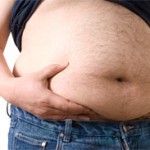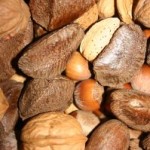Welcome back…
Regular readers know that I am a proponent of reconditioning your metabolism through a strategic mix of challenging, high intensity (but brief duration!) exercise, tactical food intake to manipulate hormones and to harness the thermic effect of eating.
I also believe that over 80% of our body’s composition is down to diet, and if your diet is wrong then you’ll stay fat.
There are two real culprits in the obesity crisis. One is the fast-acting carbs and sugars in breads, cereals, pastas, desserts, cakes, rolls, crackers and fast foods that we all tend to eat. The other is that we tend to eat overlarge portions of just about everything.
With this in mind here are six simple but effect rules to introduce into your eating habits that will enable you to drop 30 lbs or 15 kilos over about 12 weeks.
Give them a try and let me know what you think.
THE ACTION PLAN
To the remaining horror of many an ill-informed Dietician if you want to lose body fat you have to immediately go on a “controlled-carbohydrate diet “.
Now unlike what the Newspapers will tell you (or those pesky Dieticians) this doesn’t mean cutting out carbs altogether, but it does mean eating strategically and with a degree of awareness so that you restrict the carb types that significantly raise your blood sugar and thus your insulin levels. For example, the carbs found in soft drinks, sweets, baked goods like cakes & cookies, bread & pasta.
I even recommend that you cut out multigrain breads and cereals for the first few weeks. Why? Well multi-grain foods still raise insulin levels. Avoid as many grains as possible – including rice & pastas, no matter what their colour. Because milk has a significant number of carbohydrates, it is off-limits for at least the first 6 weeks – so are other dairy products except cheeses.
The upshot is that this plan limits your carbs to those found in vegetables and fruit.
Now on this plan you should also:
1) Eat only when you’re hungry
2) Eat only to the point of feeling full.
3) Eat as much protein as you like
4) Eat as many non-starchy vegetables as you like.
5) Eat no more than 80 – 150 grams of cheese daily and no other dairy for at least 6 weeks.
6) Restrict your fruit to no more than 3 daily servings of low glycemic fruits like berries, melon, apples, plums, citrus like oranges, apricots, kiwifruit or peaches or nectarines
7) Drink at least 2 litres (2 quarts) of water every day
Follow these guidelines and you’ll also lose 15 kilos in three months.
Here are the Six Simple rules:
1. Cut out quickly digested carbs.
Use the Glycemic Index as a rough guide, use the Glycemic Load of a food as an even better one. Foods that have a high glycaemic index (GI) tend to raise blood sugars quickly – it’s not the whole story but it is a good rule of thumb to follow. (more on this in Rule #2)
You’re an adult – eliminate junk food from your diet at least until you have lost the desired amount of body fat.
No soft drinks / soda pop, no sugary sweets, desserts or baked goods, no bread or biscuits etc. If it is a processed carb avoid it!
Eating these foods signals your body to release a flood of insulin – eliminate them and your insulin levels stay where you want them to be: low. This in turn improves both your health & fat loss. Need proof?
A University of Connecticut research study analysed why low-carb dieters were so successful and they calculated that at least 70 per cent of the fat loss stemmed from low-insulin levels.
2. Eat more vegetables.
Yep – your Mum was right – eat more vegetables, cliché or not there is no denying that for overall health and fat loss this works.
You need to aim for 4 or more servings of non-starchy vegetables every day. Why non-starchy?
There’s a lot of confusion about certain starchy vegetables that have a “high glycemic index”, vegetables that people following lower-carb eating plans have been told to avoid.
The glycemic load is a far more meaningful measure of the effect of foods on your blood sugar and insulin levels.
- Peas and Carrots are good examples – they have a GI of above 60 (80 for peas) but a GL of only 3. In other words a serving of carrots and / or peas will have a negligible effect on your blood sugar.
- Potatoes however have both a high a glycemic load and index – as does corn so you have to avoid these.
Take home message is that you can eat virtually any vegie of your choice other than potatoes (white, sweet or fried), and corn.
3. Have protein at every meal.
By having protein at every meal you not only promote your body’s TEF (Thermic effect of food), support muscle preservation (vital to fat loss) but you also help trip the satiety signals. Eating protein at every meal helps you feel fuller quicker and for longer.
This is particularly true for breakfast when you body is essentially coming off an 8 hour+ fast.
The best sources are beef, chicken, fish, whey protein powder and eggs.
4. Don’t be afraid of natural fat.
Fat does not get stored as fat – all foods are broken down into their components and largely turned into blood sugar(a simplistic view) and it is an excess of blood sugars that get stored as fat.
The natural (ie non-transfats, non-manipulated by man) fats like those found in unprocessed meats, avocadoes, olives or olive-oil-based dressings do not raise your insulin levels, and have little to do with making you fat.
It is when high amounts of carbs are coupled with high levels of fat(regardless of source) that insulin release is stimulated causing your body to store fat instead of burning it.
God what about cholesterol and the health of my heart??
The Journal of Nutrition reviewed 13 studies of low carb diets and found that this type of diet – even with 50% of calories typically coming from fats – were more effective at reducing heart-disease risk than traditional
low-fat diets.
5. Forget about processed foods.
This includes luncheon meats, cereals, snacks, baked goods etc etc.
If you follow only one rule, make it this: if it comes in a box or a bag, skip it. I guarantee you’ll have success.
6. Make Calorie Density work for you.
In addition to adding protein to every meal another way to eat well and to feel full is to utilise calorie density. Caloric density is the amount of calories present in a given amount or volume of food.
This means that a food that contains a large amount of calories in a small volume of food has a high caloric density. Sometimes very high. At the other end of the scale are thiose foods which are large in volume but low in calories – these foods are considered to have low calorie density.
NB The carbs with the highest caloric density tend to be those that are nutrient sparse and low calorie density carbs are nutrient dense. Fruits and vegetables have very low caloric densities, especially green and leafy vegetables. So do lean proteins.
Foods with low caloric density therefore allow you to eat more volume of food for fewer calories. You can eat more and ingest fewer calories.
Think of it this way – what is easier to eat – 1000 calories of cheesecake or 1000 calories of spinach?
So part of fat loss is to be able to eat well, eat healthily and in a way that leaves you feeling full and less likely to develop cravings. So it is important that you combine lots of fruits, veggies, beans, and lean proteins for meals that leave you full with a lower calorie price to be paid.
Here are the Six Simple rules:
1. Cut out quickly digested carbs.
2. Eat more vegetables.
3. Have protein at every meal.
4. Don’t be afraid of natural fat.
5. Forget about processed foods.
6. Make Calorie Density work for you.
Eating by following these 6 rules will enable you to shave hundreds of calories off your daily total while being completely content with the amount of food you’re eating. Not to mention how much healthier overall you’ll feel.
See you next week – Be well.








I just read this article and its amazing I am starting the change now! i mean my next meal which is supper i will have no carbs whatsover, i do need help and this is talking to me THANKS
heeeey .
this is probably the best article on weight lossss EVER !
xD